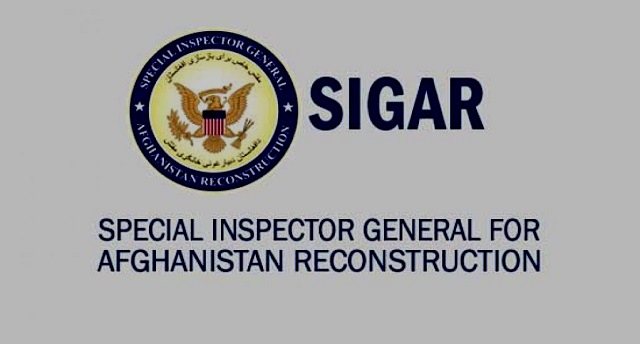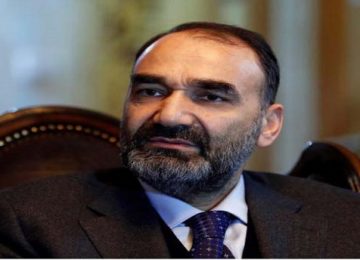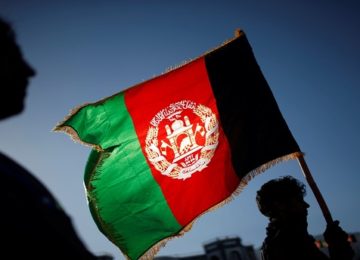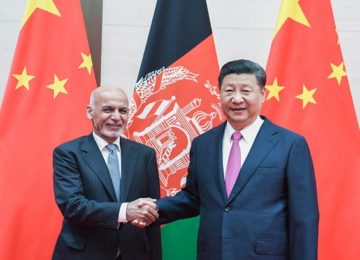The Special Inspector General for Afghanistan Reconstruction (SIGAR) has revealed that USAID’s (U.S. Agency for International Development) biggest program for Afghan women has failed in achieving its goals. The report claims that USAID has spent roughly $90 million over three years on a program intended to help tens of thousands of Afghan women to either enter or progress in the country’s workforce. However, the programme has roughly helped between 0 to 60 women since 2015. Below is a summary of SIGAR’s key findings:
Listen to SIGAR’s new podcast: First episode of “Operation Oversight” explores findings of audit report on Promote, USAID’s $216 million gender-equity program in #Afghanistan https://t.co/lJArs6SYd7
— SIGAR (@SIGARHQ) September 17, 2018
NEW REPORT: Unclear whether USAID’s $216-million Promote
program can deliver opportunities promised for women of #Afghanistan; program sustainability and US investment in doubt https://t.co/ppTk41OU8W— SIGAR (@SIGARHQ) September 13, 2018
NEW REPORT: After 3 years and $89.7 million spent,
USAID/Afghanistan has not fully assessed extent to which Promote is meeting goal of improving status of more than 75,000 women in #Afghanistan https://t.co/ppTk41OU8W— SIGAR (@SIGARHQ) September 13, 2018
NEW REPORT: USAID’s Promote launched in 2014 to improve
status of more than 75,000 women in #Afghanistan; agency hasn’t demonstrated whether program has made progress toward goal https://t.co/ppTk41xiKm— SIGAR (@SIGARHQ) September 13, 2018
Although USAID/Afghanistan adjusted performance indicators
for Promote’s individual components, results of agency’s largest-ever gender program still mixed https://t.co/rJfqEee2ws— SIGAR (@SIGARHQ) September 13, 2018
USAID/Afghanistan significantly changed Promote’s largest
component – Women in the Economy – midway through despite concerns raised by contractor, further calling into question whether program can succeed https://t.co/rJfqEdWrEU— SIGAR (@SIGARHQ) September 14, 2018
Not clear that USAID/Afghanistan has addressed challenges in
Promote programs that it can control, and taken steps to mitigate issues beyond its control https://t.co/rJfqEdWrEU— SIGAR (@SIGARHQ) September 14, 2018
USAID/Afghanistan cannot fully assess contractors’
performance in Promote gender programs because of incomplete, inaccurate records – limiting agency’s ability to make informed programming decisions https://t.co/fnly4rjxms— SIGAR (@SIGARHQ) September 14, 2018
USAID did not give specifics on how it will sustain Promote
gender programs in #Afghanistan, other than stating that the women who complete the program will sustain it https://t.co/163vbSgAk9— SIGAR (@SIGARHQ) September 14, 2018
Unclear whether graduates of USAID’s Promote gender program in #Afghanistan will obtain jobs in the private sector in large numbers due to the country’s low projected economic growth rate https://t.co/vdQG6orUTD
— SIGAR (@SIGARHQ) September 14, 2018
USAID/Afghanistan didn’t perform baseline study of Promote
until more than 2 years into the program, leaving agency without a starting point from which to monitor & evaluate program progress and to measure its overall impact https://t.co/wK51yOXIab— SIGAR (@SIGARHQ) September 15, 2018
Despite warnings from its contractor, USAID/Afghanistan
deviated from the original intent of the Promote program when it significantly modified the Women in the Economy contract – increasing participants while shortening performance period https://t.co/pUn3HZQjCL— SIGAR (@SIGARHQ) September 15, 2018
As of September 2017, only one of four components of USAID’s
Promote gender programs – Musharikat, focused on women in civil society – was meeting its performance indicator targets https://t.co/vdQG6oJvLb— SIGAR (@SIGARHQ) September 16, 2018
Multiple problems – both within and outside USAID/Afghanistan’s control – contributed to missed targets in Promote programs https://t.co/vdQG6oJvLb
— SIGAR (@SIGARHQ) September 16, 2018








